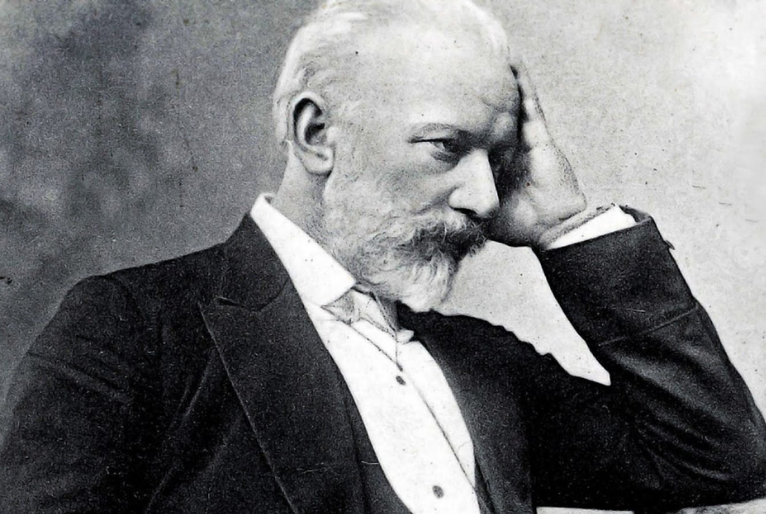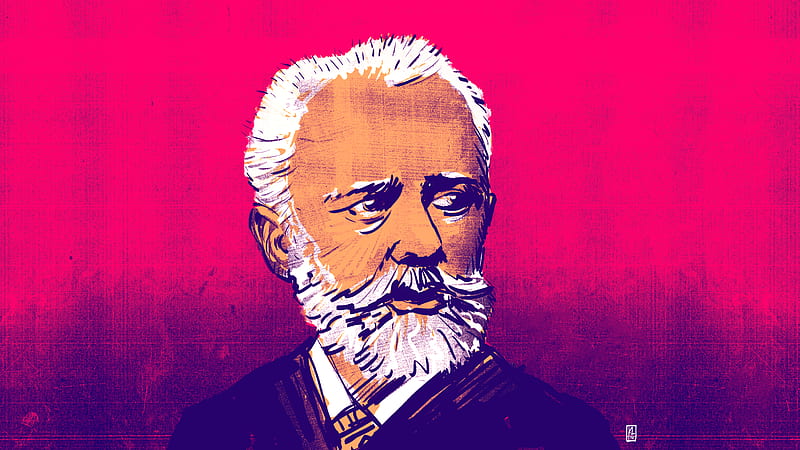Pyotr Ilyich Tchaikovsky, one of the most celebrated composers in the history of classical music, left an indelible mark on the world of music with his timeless compositions. Born on May 7, 1840, in Votkinsk, Russia, and passing away on November 6, 1893, in St. Petersburg, Tchaikovsky's life and work continue to captivate audiences around the world. Here are ten fascinating facts about this musical genius:
1. Early Beginnings: Tchaikovsky displayed musical talent from a young age. He began taking piano lessons at the age of five, and his remarkable abilities quickly became evident to his family.
Pyotr Ilyich Tchaikovsky, the renowned Russian composer, remains one of the most celebrated figures in the world of classical music. His compositions, including iconic pieces like "Swan Lake," "The Nutcracker," and "1812 Overture," have enchanted audiences for generations. Behind the masterpieces lies a fascinating man with a life full of interesting stories and curiosities. Join us as we delve into the world of Pyotr Ilyich Tchaikovsky and uncover some lesser-known facts about this musical genius.
Pyotr Ilyich Tchaikovsky's music continues to resonate with audiences worldwide, thanks to its emotional depth, lyrical beauty, and powerful orchestration. From the symphonic grandeur of his symphonies to the enchanting melodies of his ballets, Tchaikovsky's compositions stand as testament to his enduring genius. Whether evoking love, triumph, or tragedy, his music has the power to transport listeners to new realms of emotion and imagination. As we revisit these seven masterpieces, we are reminded of Tchaikovsky's remarkable legacy and the lasting impact he has made on the world of classical music.
Born in 1840 in Votkinsk, Russia, Tchaikovsky grew up during a time when homosexuality was largely condemned and considered taboo. As a result, he was forced to lead a life shrouded in secrecy, grappling with the constant fear of exposure and social ostracism. In an era when same-sex relationships were often met with disdain, Tchaikovsky struggled to reconcile his sexual orientation with societal expectations.
Pyotr Ilyich Tchaikovsky was one of the most influential composers of the Romantic era. His music is widely admired for its expressive melodies, rich orchestration, and emotional depth. He wrote many masterpieces in various genres, such as ballets, symphonies, operas, and chamber music. Here are seven curiosities about his life and work that you may not know.
1. He was a lawyer before he became a composer. Tchaikovsky studied law at the Imperial School of Jurisprudence in Saint Petersburg and worked as a civil servant for three years. He was unhappy with his career choice and decided to pursue his passion for music. He enrolled at the Saint Petersburg Conservatory of Music in 1862 and graduated in 1865.
Pyotr Ilyich Tchaikovsky was one of the most influential and popular composers of the Romantic era. He was born on May 7, 1840, in Votkinsk, Russia, to a well-off family of civil servants. He showed an early interest in music and learned to play the piano at the age of five. However, his parents did not encourage his musical aspirations and instead sent him to a boarding school in St. Petersburg to prepare for a career in law.
The Story Behind "The Nutcracker" by Tchaikovsky
The story of The Nutcracker is loosely based on the E.T.A. Hoffmann fantasy story The Nutcracker and the Mouse King, about a girl who befriends a nutcracker that comes to life on Christmas Eve and wages a battle against the evil Mouse King. Hoffmann’s story is darker and more troubling than the version that reached the stage; the Imperial Russian Ballet choreographer Marius Petipa chose to follow a light adaptation of the story written by Alexandre Dumas père.
#classicalmusic
#tchaikovsky
#orchestra
Tchaikovsky - Short Biography
Pyotr Ilyich Tchaikovsky (7 May 1840 – 6 November 1893) was a Russian composer of the Romantic period. He was the first Russian composer whose music would make a lasting impression internationally. He wrote some of the most popular concert and theatrical music in the current classical repertoire, including the ballets Swan Lake and The Nutcracker, the 1812 Overture and the opera Eugene Onegin.
#classicalmusic
#tchaikovsky
#orchestra
We are a educational channel specializing in history of classical music.
Our goal is to spread classical music to the greatest number of people.
Explore our channel and listen to more works by Mozart, Chopin, Beethoven, Tchaikovsky, Bach, Haydn, Schumann, Schubert, Vivaldi, Dvorak, Debussy and more! I hope you enjoy it and don't forget to Subscribe. 🎧
🔴 Facebook: https://www.facebook.com/TopClassicalMusic
🔴 WebSite: https://www.melhoresmusicasclassicas.com
Five Facts You Didn't Know About Tchaikovsky
1. Tchaikovsky was born in Vostkinsk, a small town in Udmurt Republic, Russia. He began piano lessons at the age of five. Precocious, within three years he had become as adept at reading sheet music as his teacher.
#classicalmusic
#tchaikovsky
#orchestra
We are a educational channel specializing in history of classical music.
Our goal is to spread classical music to the greatest number of people.
Explore our channel and listen to more works by Mozart, Chopin, Beethoven, Tchaikovsky, Bach, Haydn, Schumann, Schubert, Vivaldi, Dvorak, Debussy and more! I hope you enjoy it and don't forget to Subscribe. 🎧
🔴 Facebook: https://www.facebook.com/TopClassicalMusic
🔴 WebSite: https://www.melhoresmusicasclassicas.com
Why did Tchaikovsky's compositions receive heavy criticism?
Critical reception to Tchaikovsky's music was varied but also improved over time. Even after 1880, some inside Russia held it suspect for not being nationalistic enough and thought Western European critics lauded it for exactly that reason.
#classicalmusic
#tchaikovsky
#orchestra
We are a educational channel specializing in history of classical music.
Our goal is to spread classical music to the greatest number of people.
Explore our channel and listen to more works by Mozart, Chopin, Beethoven, Tchaikovsky, Bach, Haydn, Schumann, Schubert, Vivaldi, Dvorak, Debussy and more! I hope you enjoy it and don't forget to Subscribe. 🎧
🔴 Facebook: https://www.facebook.com/TopClassicalMusic
🔴 WebSite: https://www.melhoresmusicasclassicas.com





